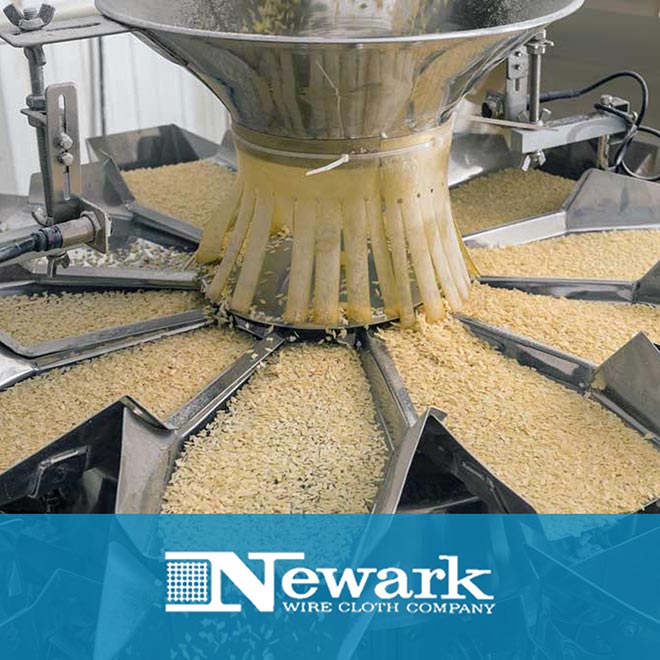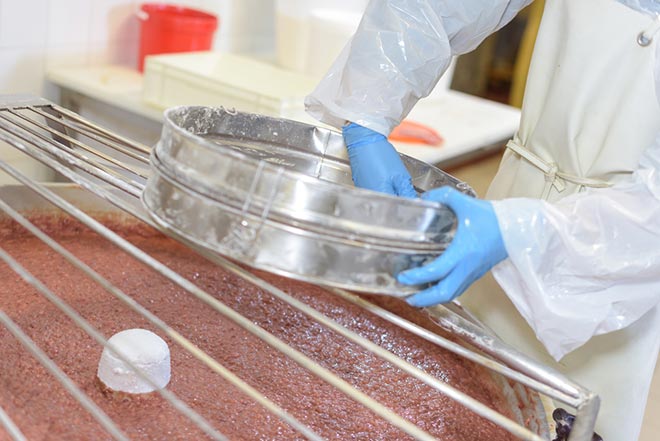Newark Wire News
Newark Wire News
3 Reasons Stainless Steel is the Metal of Choice for Straining
Written by
Newark Wire Cloth Company

Many buyers of straining products are familiar with the various materials available on the market for test sieves and working sieves. Brass, bronze, and stainless steel strainer sieves are among the most common. Out of the three, stainless steel straining has become the preferred choice for a number of reasons. Below is a good snapshot of the profile for this reliable metal material.
Table of Contents
ToggleReasons for Stainless Steel
For more than a century stainless steel has been highly regarded as the ideal metal for many industrial applications. Here are three of many credible reasons why stainless steel is the best material for straining sieves:
1. It’s the More Affordable Choice
Though brass alloys consistently held lower prices for the past five years, it is now significantly more expensive than stainless steel by the pound due to rising prices in copper. These price fluctuations have placed stainless steel on the map again for its affordability, which is good news for many manufacturers. Stainless steel straining, therefore, will be more cost-effective in 2018 than straining with brass sieves, and their purchasing prices are now lower at face value in the buying market.
2. Stainless Steel’s Durability is Sound
The durability of fine mesh stainless steel strainer products is well known. The chromium content in stainless steel alloys prevent rusting compared to regular steel blends, and stainless steel strainer equipment does not tarnish like brass sieves commonly do. Many sieve purchasers are surprised to find their brass strainers arrive tarnished, and while it’s true that the tarnish can be removed, it is harder to completely remove with fine mesh. With stainless steel, there’s no tarnishing and no wasted time cleaning.
3. It’s Trusted in the Food and Pharmaceutical Industries
The ability for fine mesh stainless steel industrial strainer equipment to maintain a hygienic environment and to hold up to moisture and acidic contact has given stainless steel a strong reputation in the food and pharmaceutical industries. Stainless steel straining is particularly useful for wet sieving and is more corrosion and abrasion resistant than brass. Because stainless steel is a harder metal, it will also hold up to daily working sieve cleaning and use much longer than brass. Thus, stainless steel will deliver accurate results for longer periods of time for each sieve unit.

Newark Wire: Your Stainless Steel Industrial Strainer Source
While brass has been a common material for straining devices, stainless steel straining is now the preferred choice in industrial applications for the following reasons:
- Stainless steel is more affordable than brass in today’s market due to rising copper prices.
- There is a solid track record in stainless steel’s durability since it does not rust compared to regular steel, and it will not tarnish like brass.
- Stainless steel’s hygienic and moisture-resistant properties are preferred for wet sieving applications in the food and pharmaceutical industries.
- Fine mesh stainless steel strainer products are more resistant to deterioration from acidic contact and daily use than strainers made from other materials.
Recognizing these new trends, Newark Wire is even more focused on supplying you with a wide selection of high-quality stainless steel straining products for your business. Our industrial strainers serve many types of industries including chemical, manufacturing, food, medical, pharmaceutical and more. In addition to our pre-cut sizes, we can also custom order specifications for your needs. Contact us today to get started.
